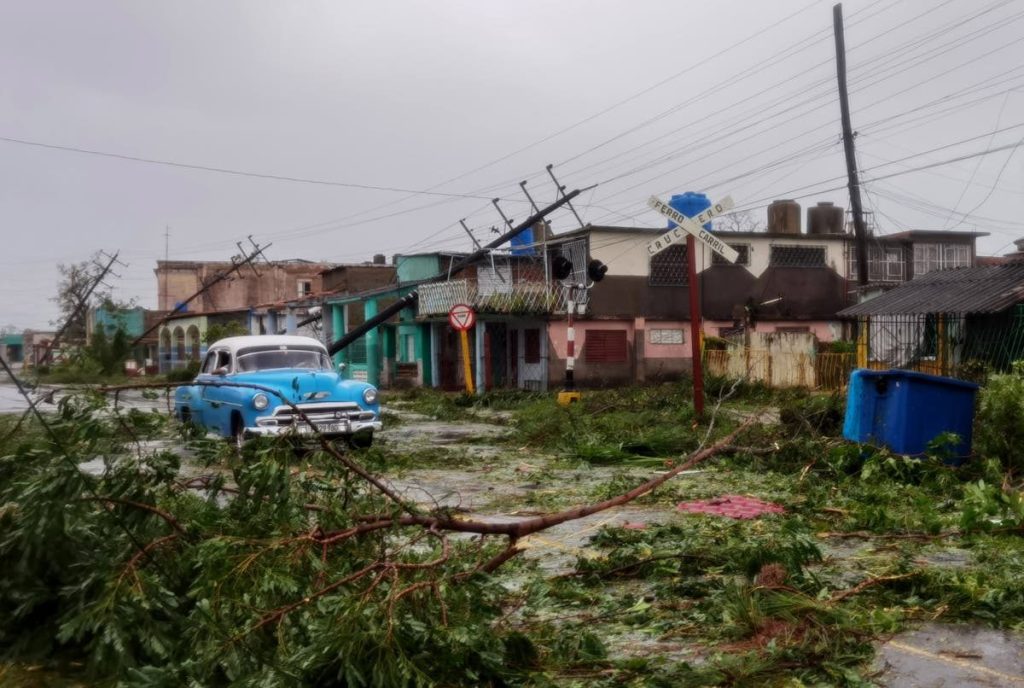Massive Power Outage Hits Cuba, Leaving 10 Million People Without Electricity
On 18th of October 2024, the island of Cuba faced a devastating power outage that plunged the entire country into darkness, affecting over 10 million people. This unprecedented event has not only disrupted daily life but also highlighted the island’s long-standing issues with energy infrastructure and economic challenges. In this blog, we’ll explore the key factors behind the outage, its impact on the population, and what this means for Cuba’s future energy security.

The Scope of the Outage: 10 Million People Affected
The power failure on the island of Cuba left every single province without electricity, impacting daily activities, businesses, and essential services like hospitals and public transportation. The blackout hit major cities like Havana, Santiago de Cuba, and smaller towns, leaving people in a state of confusion and discomfort. With high temperatures and no air conditioning or refrigeration, life quickly became difficult, especially for those in vulnerable conditions, such as the elderly and people with health issues.
What Caused the Power Outage?
Initial reports suggest that the power failure was triggered by a failure in the island’s main power grid, which led to a domino effect. Cuba’s power system is centralized, meaning a failure in a critical part of the network can easily lead to widespread outages. While the exact technical cause is still being investigated, outdated infrastructure, lack of investment, and fuel shortages have long plagued the nation’s power system, leaving it vulnerable to large-scale disruptions.
Some experts are pointing to Cuba’s aging thermoelectric plants, many of which are operating beyond their intended lifespan. These plants, combined with poor maintenance and an underfunded energy sector, have made power outages a common issue. However, the extent of this particular outage is unusual, both in its scope and duration.
Immediate Impact on Daily Life
The blackout has had a far-reaching effect on almost every aspect of daily life in Cuba:
- Public Services and Healthcare: Hospitals and medical centers, already struggling with limited resources, were forced to rely on backup generators. Some reported disruptions in essential medical services, leading to fears for those who rely on machines like ventilators.
- Transportation: Public transport, including buses and taxis, was severely hampered as fuel shortages combined with the outage. Streetlights went out, increasing the risk of accidents at night.
- Food and Water Supply: Many Cubans rely on electric pumps for their water supply. Without power, access to clean water became a major issue. Additionally, the lack of refrigeration posed serious problems for food preservation, exacerbating food insecurity in an already fragile economy.
- Communication: Telecommunications were also affected. With mobile phone towers and internet services down in several regions, staying connected with the outside world became difficult. Social media updates, often used to keep the world informed of the island’s situation, were sporadic.
Government Response and Public Frustration
The Cuban government acknowledged the outage, stating that repair crews were working around the clock to restore power. However, many citizens expressed frustration, as blackouts have become more frequent in recent years.
Social media platforms like Twitter and Facebook were filled with posts from Cubans expressing their anger over the situation. “We are used to shortages, but this is beyond acceptable,” said one resident in Havana.
The government also pointed out that the U.S. embargo has severely hampered Cuba’s ability to invest in its energy infrastructure. However, critics argue that mismanagement and inefficiencies in the state-run power system are equally to blame for the island’s energy woes.
Long-Term Consequences: What’s Next for Cuba’s Power Grid?
This power outage is a wake-up call for the Cuban government and its energy planners. The island’s energy infrastructure is in dire need of modernization, but with limited resources and the continuing U.S. embargo, the path to a stable and resilient power grid is fraught with challenges.
Cuba has made efforts in the past to diversify its energy sources, especially with renewable energy. However, the bulk of its power still comes from outdated thermoelectric plants that rely on fossil fuels. With fuel shortages becoming more common due to international sanctions and supply chain issues, the future of Cuba’s energy sector looks increasingly uncertain.
Conclusion: An Urgent Need for Energy Reform
The massive power outage that left 10 million people without electricity on the island of Cuba is a stark reminder of the nation’s ongoing energy crisis. While the immediate focus is on restoring power, the broader issue of Cuba’s aging infrastructure and underfunded energy sector needs to be addressed if future blackouts are to be prevented.
In the long run, a combination of foreign investment, infrastructure modernization, and a shift toward renewable energy will be essential for Cuba’s energy security. However, until these changes are implemented, the Cuban population will continue to face the challenges of an unreliable power grid, and the country’s fragile economy will remain at risk of further disruptions.
By understanding the root causes of the outage and the immediate impact on Cuba’s population, we can better appreciate the pressing need for systemic changes in the island’s energy infrastructure.
SEO Keywords:
- Cuba power outage
- Cuba blackout
- Cuban energy crisis
- island-wide blackout in Cuba
- 10 million without electricity in Cuba
- power failure Cuba
This blog combines current events with a detailed look at Cuba’s energy issues, focusing on SEO-friendly keywords while maintaining a well-rounded analysis of the situation. Let me know if you need adjustments or additional details!








